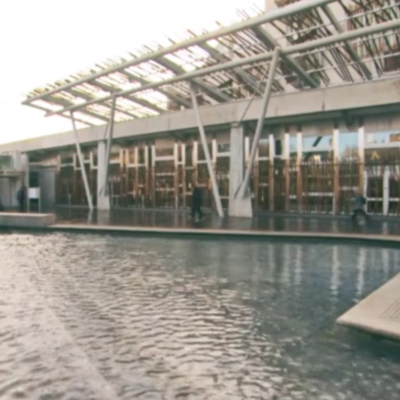Public policy highlights May 2019
Our policy committees have had a busy month analysing and responding to proposed changes in the law. We do this to positively influence the creation of a fairer and more just society through our active engagement with the Scottish and United Kingdom Governments, Parliaments, wider stakeholders and our membership.
You can read more about some of the month's highlights below:
Succession law
Our Trusts and Succession Law Sub-Committee responded to the Scottish Government’s consultation on succession law.
We believe that aspects of the law covering inheritance rules in Scotland could be made fairer. The government’s proposals only relate to cases where an individual has died without a will and we know from research conducted by the Scottish Consumer Council in 2006 that only 37% of people in Scotland had made a will. While we agree that the current approach requires reform, we have stressed the importance of making a will as the best way to ensure that an individual’s wishes are properly covered.
We also highlighted anomalies in the current law providing rights to cohabiting couples, which we feel are problematic and disadvantageous to vulnerable and grieving individual people. Currently a claim must be made to the court within six months of the date of the death of the cohabitant, during which time an individual is likely to be grieving and struggling to deal with practical matters following the death of a partner. We welcome the Scottish Government’s intention to extend the period to 12 months from the date of death. In cases where confirmation is obtained in respect of the deceased’s estate after the expiry of 12 months from death, we have suggested an additional extension of up to six months from the date of confirmation.
Vulnerable Witnesses (Criminal Evidence) Bill
Our Criminal Law Committee issued a briefing to all MSPs ahead of the Scottish Parliament’s stage 3 debate on the Vulnerable Witnesses (Criminal Evidence) Bill.
We fully support the principles of the Bill in improving and supporting how children and vulnerable witnesses give evidence and the inclusion of domestic abuse as a relevant category of offence.
However, we have raised concerns which relate to practical implications around the implementation of the Bill. We feel that there should be early identification by the Crown of relevant cases which require the use of new measures to support vulnerable witnesses in court. We have also called for the provision of adequate resources for the Crown and defence (through legal aid) to ensure that these new measures can be utilised effectively.
Environmental protections post-Brexit
Our Environmental Law Sub-Committee responded to the Scottish Government’s consultation on environmental principles and governance in Scotland.
We support proposals to maintain a role for the EU environmental principles in developing future Scottish environmental policy but have warned that there may be missing environmental governance mechanisms as a result of Brexit.
Protection of the environment is now a mainstream, baseline requirement in law and politics and it’s essential that appropriate protections continue post-Brexit. We support the Scottish Government’s proposal to introduce a duty on Scottish Ministers in relation to the EU environmental principles in developing future environmental policy in Scotland. We believe that this duty should also extend to public authorities and we have called for clear guidance as to how the principles are to be treated.
We have also warned of significant governance issues arising as a result of the loss of EU environmental scrutiny mechanisms and assessment of performance. The absence of the EU mechanisms could reduce environmental governance and scrutiny. While it can be challenging to galvanise action by the European bodies, the international oversight will be lost, and it is important that individuals are able to raise concerns and have them followed through by an appropriate expert and well-resourced body.
Children (Equal Protection from Assault) (Scotland) Bill
Our Criminal Law Committee issued a briefing to all MSPs ahead of the Scottish Parliament’s stage 1 debate on the Children (Equal Protection from Assault) (Scotland) Bill.
We have called for clarification of the law which has led to confusion amongst parents and carers. We feel that this perceived confusion has also made it more difficult for public services to have confidence in their approach when working with parents.
The public has a right to know what they can and cannot do in so far as the criminal law is concerned and removing the defence of reasonable chastisement would provide further clarity to the law.

Influencing the law and policy
One of the main functions of our policy team, along with our network of volunteers, is to analyse and respond to proposed changes in the law.

